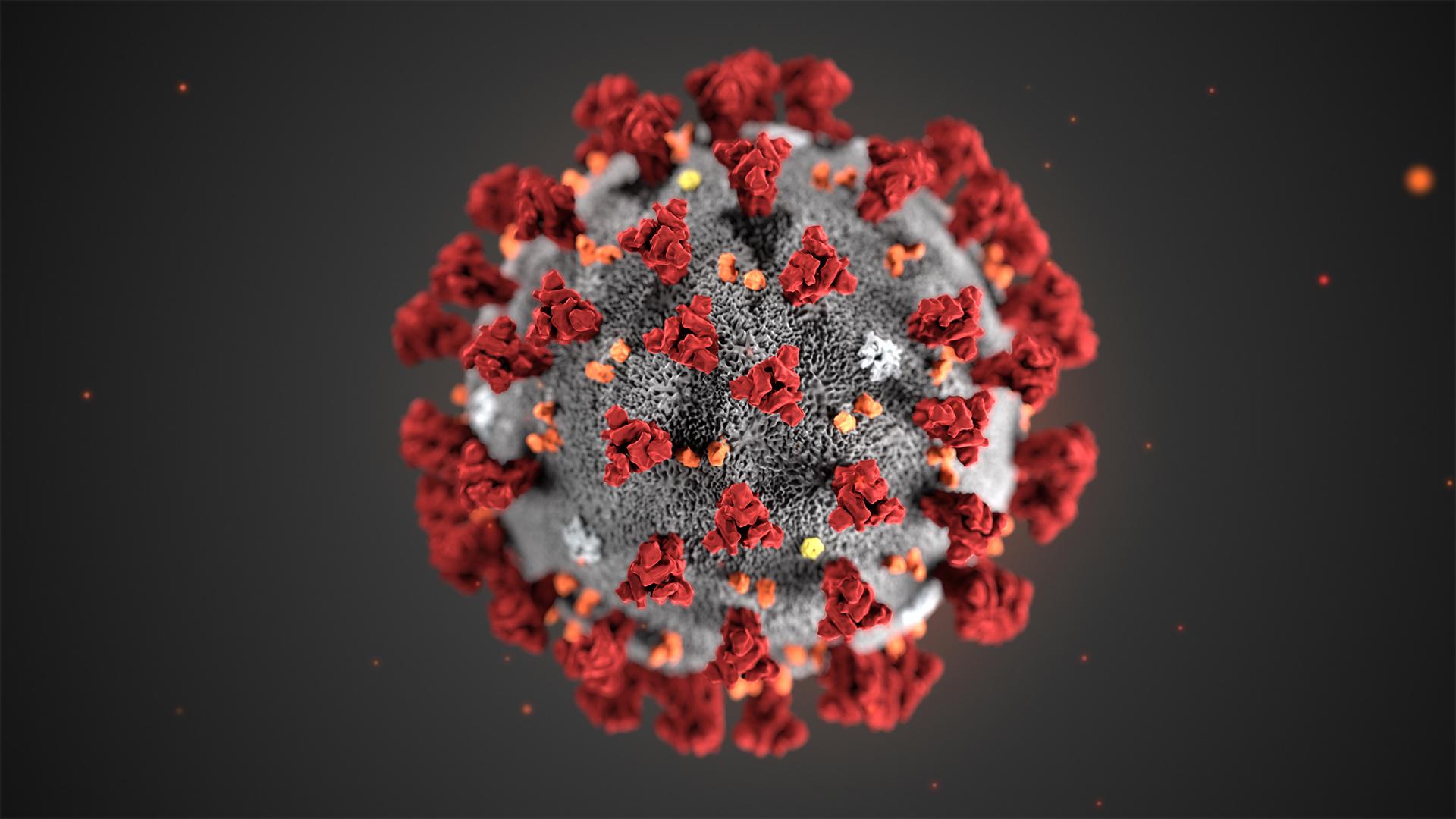 This illustration provided by the Centers for Disease Control and Prevention in January 2020 shows the 2019 Novel Coronavirus (2019-nCoV).
This illustration provided by the Centers for Disease Control and Prevention in January 2020 shows the 2019 Novel Coronavirus (2019-nCoV).
On Friday, the Centers for Disease Control and Prevention announced a quarantine order for 195 American evacuees from Wuhan, China, where the coronavirus outbreak originated and continues to spread.
The evacuees will spend two weeks at the March Air Reserve Base in Riverside, California, where they arrived Wednesday after departing earlier this week from Wuhan, according to the CDC.
“While we recognize (this is) an unprecedented action, we are facing an unprecedented public health threat,” said Nancy Messonnier, director of the CDC’s national center for immunization and respiratory disease, in a Friday afternoon press call. “We are preparing as if this is the next pandemic, but hopefully this will not be the case.”
The CDC says it continues to believe the risk posed by the illness to the American public is low. The quarantine order has been put in place as a necessary step to fully assess and care for the repatriated Americans, and protect them, their loved ones and their communities, the agency said.
Reports of the virus spreading from person to person and among people who don’t have symptoms contributed to the CDC’s decision to issue the quarantine order, according to Messonnier. “This outbreak continues to evolve every day,” she said. “As new information becomes available we have to re-evaluate (our) guidance.”
Unlike isolation, which restricts the movements of people who are sick, a quarantine restricts the movement of someone who is not yet sick but may have been exposed to the virus, according to the CDC.
“(CDC) believes this approach of having a quarantine for the incubation period (of the novel coronavirus) offers the greatest level of protection for the American public,” said Martin Cetron, director of the CDC’s division of global migration and quarantine.
While quarantined, individuals will be monitored by medical staff for respiratory symptoms and have their temperatures checked. Medical care will be readily available if an individual develops symptoms.
A negative screening test for the virus doesn’t necessarily mean an individual won’t develop the virus over the 14-day incubation period, according to the CDC. “(This is) a point-in-time single test and it shouldn’t be relied upon as to whether to predict if (someone) will become ill,” said Messonnier.
Health officials said the quarantine was based on scientific evidence and was not issued in response to reports of a person trying to leave the base Wednesday night. They expressed gratitude for the 195 evacuees’ cooperation, acknowledging the difficulty of the situation.
The quarantine order comes a day after the first person-to-person spread of the virus was reported in the U.S. and the World Health Organization declared the outbreak a global health emergency. Also on Thursday, the U.S. State Department issued a “Do Not Travel” advisory to China. This is the first time in 50 years the CDC has issued a quarantine order.
“We understand these recommendations are concerning,” Messonnier said. “Do not let fear or panic guide your actions. Please do not assume because someone is of Asian descent they have this novel coronavirus.”
There have been six confirmed cases of the novel coronavirus in the U.S., including two in Illinois. As of Friday morning, more than 9,600 cases have been reported in China, where 213 have died, according to The Associated Press.
Coronaviruses are respiratory viruses that range from the common cold to more serious illnesses, like SARS and MERS, and are generally spread via droplets in the air when people cough or sneeze, as happens with the common cold, according to officials. Health officials said it’s not clear how easily transmissible the strain is that originated in Wuhan, known as the novel coronavirus, and that there is no treatment or vaccine for it.
To help prevent the spread of coronaviruses, officials advise avoiding people who are sick and washing your hands often with soap and water for at least 20 seconds. If you haven’t washed your hands, don’t touch your eyes, nose or mouth. The CDC does not recommend face masks for the general public.
Contact Kristen Thometz: @kristenthometz | (773) 509-5452 | [email protected]
The Associated Press contributed.








